ERC MySocialBeIng Research Team
Project Leader:
Prof. Dr. Philipp W. Stockhammer
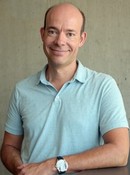
I am a prehistoric archaeologist with a particular interest in the Bronze and Early Iron Ages – especially in the Eastern Mediterranean – as well as archaeological theory and the integration of archaeological and scientific analyses. Intercultural encounter, mobility, social belonging, health and food cultures of the past have been in the focus of my interest for many years. I (co-)directed several collaborative research projects (“MySocialBeIng”, “FoodTransforms”, “BEFIM”, “Times of Upheaval”) in which we aimed at writing a novel bioarchaeologically inspired prehistory.
Ludwig-Maximilians-Universität München
Institut für Vor- und Frühgeschichtliche Archäologie und Provinzialrömische Archäologie
Geschwister-Scholl-Platz 1
80539 München
Germany
philipp.stockhammer[at]lmu.de
and
Department of Archaeogenetics
Max Planck Institute for Evolutionary Anthropology
Deutscher Platz 6
04103 Leipzig
Germany
philipp_stockhammer[at]eva.mpg.de
Group leader
Dr. Alissa Mittnik
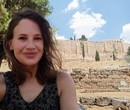
I am a geneticist who specialises in integrative archaeoscientific methodologies aimed at reconstructing past social organisation, including social stratification, kinship structures, gender roles, and cultural practices. Within the MySocialBeIng project, I oversee the archaeogenetic analyses contributing to our understanding of genetic correlates within social frameworks of the Bronze Age Aegean. My research focuses on the ancient Mediterranean and Central Europe, exploring modes of cultural transformation, mobility, connectivity, and past constructions of kinship.
Department of Archaeogenetics
Max Planck Institute for Evolutionary Anthropology
Deutscher Platz 6
04103 Leipzig
Germany
alissa_mittnik[at]eva.mpg.de
Project manager
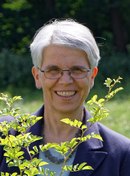
I studied pre- and protohistoric archaeology and ancient history and have a special interest – amongst others – in agriculture, early technologies, nutrition, ritual, and women. I joined Philipp Stockhammer's team at LMU Munich in 2016 for projects such as BEFIM and FoodTransforms. My main task within MySocialBeIng is collecting and integrating archaeological and cultural-historical background information with the project's scientific results, e. g. with an eye on women and foreigners. I co-author and edit papers and assist with project management.
Ludwig-Maximilians-Universität München
Institut für Vor- und Frühgeschichtliche Archäologie und Provinzialrömische Archäologie
Geschwister-Scholl-Platz 1
80539 München
Germany
j.friesknoblach[at]lmu.de
Researchers
Dr. Suzanne Freilich
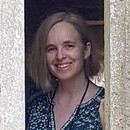
I am an anthropologist and archaeogeneticist. My main interest is in combining multidisciplinary approaches spanning archaeology, genetics and anthropology. In particular, my work focuses on the archaeogenetic analysis of ancient individuals from a variety of burial contexts and time periods to elucidate the genetic and social histories of past people and communities. This encompasses within community patterns of biological relatedness and social organisation, as well as broader scale patterns of migration and mobility. I also work with strontium isotope signatures and carbon and nitrogen stable isotopes to help reveal patterns of human mobility and diet in prehistory.
Department of Archaeogenetics
Max Planck Institute for Evolutionary Anthropology
Deutscher Platz 6
04103 Leipzig
Germany
suzanne_freilich[at]eva.mpg.de
Irene Högner M.A. (PhD student)
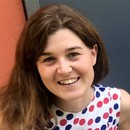
I am an archaeologist with a focus on funerary contexts and interdisciplinary approaches that integrate data from anthropological, archaeogenetic and isotope analyses. My research interests are questions of cultural and social identities, kinship, and secondary burial practices. In my PhD project within MySocialBeIng I analyse the chamber tomb necropolis of Elateia-Alonaki (Central Greece) with an integrative multi-proxy approach. The aim is to investigate the distribution patterns of individuals’ genetic kinship, diet, mobility, and material culture and thus for the first time to explore the factors promoting joint burial in chamber tombs. I will also draw conclusions regarding associated notions of social kinship and belonging.
Ludwig-Maximilians-Universität München
Institut für Vor- und Frühgeschichtliche Archäologie und Provinzialrömische Archäologie
Geschwister-Scholl-Platz 1
80539 München
Germany
irene.hoegner[at]lmu.de
Dr. Ioanna Moutafi
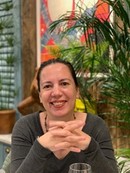
I am a bioarchaeologist specialising in the excavation and contextual analysis of human remains from the prehistoric Aegean. The focus of my research is social bioarchaeology. Working primarily with collective skeletal assemblages from the Bronze Age Aegean, I employ a multi-dimensional biosocial approach that brings together traditional bioarchaeology, mortuary theory and current advances in archaeothanatology and funerary taphonomy, with the aim to shed light on the social dimensions of Aegean mortuary practices. In MySocialBeIng I will mostly work on the Mycenaean Tholos of Amfissa, the only tholos ever found so far in Boeotia, Greece. This tomb is rather peculiar as the tholos contains more than 100 individuals, posing special interpretive questions. The multidisciplinary approach of Philipp Stockhammer in MySocialBeIng and the collective expertise of his team provide the ideal framework to address this challenge.
Ludwig-Maximilians-Universität München (from 03/2024)
Institut für Vor- und Frühgeschichtliche Archäologie und Provinzialrömische Archäologie
Geschwister-Scholl-Platz 1
80539 München
Germany
imoutafi[at]yahoo.gr
Dr. Eirini Skourtanioti
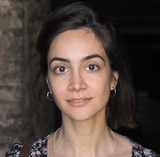
I am an evolutionary biologist specialised in ancient DNA and human population genetics. My research is focused on an integrative approach of genomic data with archaeological theory and evidence. Through the computational analysis of ancient genomes, I study different biological processes, from population admixture and signatures of natural selection to biological relatedness and marital practices, contributing new information to past mobility, social organisation and interaction of human populations with their environment. By applying this approach in the Aegean, we have revealed hitherto unknown aspects of family organisation during the Bronze Age. Within MySocialBeIng, I will analyse intra- and inter-cemetery data from the Mycenaean and post-Mycenean periods from Attica for fine-scale population structure and kinship patterns.
Ludwig-Maximilians-Universität München (from 04/2024)
Institut für Vor- und Frühgeschichtliche Archäologie und Provinzialrömische Archäologie
Geschwister-Scholl-Platz 1
80539 München
Germany
eirini_skourtanioti[at]eva.mpg.de
Anthi Tiliakou (PhD student)
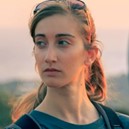
I am an anthropologist skilled in different areas of archaeology, osteological analysis and forensic science and currently conduct research in ancient DNA and bio-cultural evolution of the Helladic Region. More recently, the multilevel analysis of human skeletal remains has significantly contributed to the better understanding of how human mobility and biological kinship might have impacted the formation of social identities, socio-cultural dynamics and post-mortem handling of individuals. By implementing genetic data to the archaeological and anthropological contexts available, I aspire to propose answers to these questions and bring biological kinship and genetic ancestry into the play of human groups dynamics.
Department of Archaeogenetics
Max Planck Institute for Evolutionary Anthropology
Deutscher Platz 6
04103 Leipzig
Germany
anthi_tiliakou[at]eva.mpg.de

